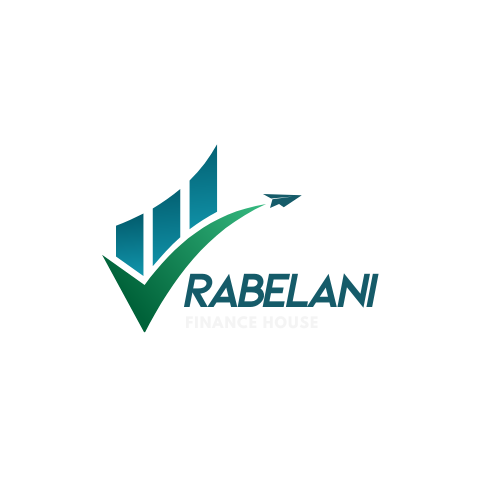In South Africa, finding the right loan company can be a game-changer when you need financial assistance, whether for personal needs, business investments, or unexpected expenses. However, the number of options available can feel overwhelming, and it’s essential to choose wisely to avoid high-interest rates, hidden fees, and potential scams. Here’s a step-by-step guide to help you navigate this decision and find a reputable loan provider that suits your needs.
1. Understand Your Loan Needs
Before diving into research, clarify the purpose and amount of your loan. Knowing exactly how much you need and what it’s for will help you find a lender with terms that match your situation. For example:
- Personal loans are usually for general purposes, like medical expenses, home renovations, or travel.
- Business loans help entrepreneurs and business owners with working capital or expansion costs.
- Home and car loans are specific to purchasing property or vehicles, with different interest rates and terms.
Defining your loan needs allows you to eliminate lenders that don’t offer the services or flexibility you require.
2. Research Reputable Loan Providers
Start with banks and well-established financial institutions, as these typically offer more secure lending options. In South Africa, some of the well-known banks like Absa, Nedbank, FNB, Standard Bank, and Capitec provide a variety of loan products.
Another route is reputable microlenders, particularly if you need smaller, short-term loans. Check that these lenders are registered with the National Credit Regulator (NCR) to ensure that they follow South Africa’s strict lending regulations. The NCR provides a list of accredited lenders, which you can consult to avoid scams.
3. Compare Interest Rates and Loan Terms
Interest rates can vary widely among lenders, so comparing rates is essential. Many banks and credit providers have online calculators that allow you to simulate the cost of different loans, showing interest rates, repayment terms, and monthly installment amounts. Here are key factors to consider:
- Fixed vs. Variable Rates: Fixed rates remain the same throughout the loan period, while variable rates can fluctuate. Choose the one that fits your financial stability.
- Repayment Terms: Longer terms generally mean lower monthly installments but can result in higher total interest.
- Fees and Charges: Apart from interest, check if there are initiation fees, monthly service fees, or penalties for early repayment.
4. Check for Transparent Terms and Conditions
Transparency is critical in any loan agreement. Legitimate loan companies will clearly explain their terms and won’t pressure you into signing. Be cautious of lenders who seem hesitant to disclose fees or who make the process seem overly urgent.
Ask for a detailed loan agreement and review the fine print. Pay attention to:
- Total cost of credit: This includes interest, fees, and any other charges associated with the loan.
- Repayment flexibility: Look for options that allow you to adjust your repayment schedule if your financial situation changes.
- Late payment penalties: Make sure you understand the consequences if you miss a payment.
5. Read Reviews and Seek Recommendations
Customer feedback is a valuable resource when evaluating loan companies. Look for online reviews from trusted sources and forums, and ask for recommendations from friends or family who may have experience with a specific lender. Some companies may have positive marketing but poor customer service or hidden fees, so user reviews can reveal what’s truly offered.
6. Avoid Predatory Lending Practices
Predatory lenders target vulnerable borrowers with unreasonable terms, high fees, and often misleading promises. To avoid these risks:
- Verify the company’s registration with the NCR.
- Steer clear of lenders offering “guaranteed approval” without credit checks, as these are often scams.
- Be wary of unsolicited offers sent via SMS, email, or social media.
Legitimate lenders will assess your credit profile before approving a loan. A credible company will not promise approval without evaluating your ability to repay.
7. Look for Additional Financial Guidance
Some loan companies provide financial advice and education to help you manage your debt responsibly. Companies that prioritize financial literacy often demonstrate a commitment to their clients’ long-term well-being. If you’re new to loans, this type of support can be beneficial in helping you understand how to manage your debt.
8. Take Advantage of Financial Technology (FinTech)
In South Africa, financial technology (FinTech) platforms like Lulalend and Yoco Capital offer unique loan products that might better suit small business owners or individuals needing quick, short-term financing. These platforms often use technology to make lending more accessible and transparent, providing a more streamlined application process compared to traditional banks.
9. Get Pre-Approval and Compare Offers
After narrowing down a few potential loan companies, consider applying for pre-approval if available. Pre-approval provides insight into how much you might qualify for and the potential interest rate. It’s a great way to compare options side-by-side before committing.
10. Make an Informed Decision
Once you’ve reviewed all the information, take time to evaluate which company offers the best terms for your financial needs. Prioritize:
- Competitive interest rates
- Flexible repayment options
- Transparent and fair terms
- Positive customer feedback
Remember, choosing the right loan company is a critical decision that can impact your financial health. By taking a methodical approach and researching thoroughly, you can make a choice that aligns with your needs and financial situation.
Final Thoughts
Finding the right loan provider in South Africa may take time, but a diligent approach can save you money and protect you from financial pitfalls. With clear goals, thorough research, and careful comparison, you can secure a loan that empowers you financially, without compromising your long-term stability.


